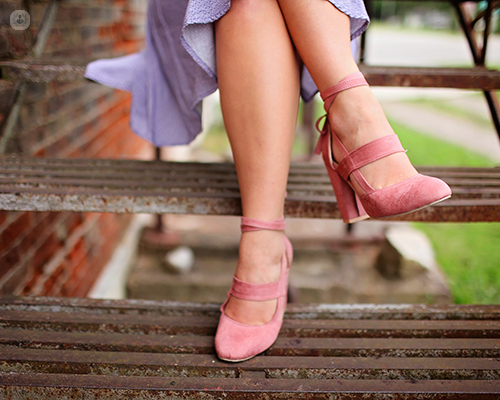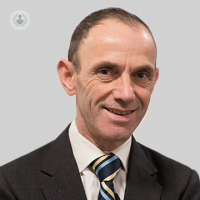Varicose veins: is treatment with sedation the best option for you?
Written by:Varicose veins are abnormal, dilated veins that predominantly occur in the leg. They can also occur in the pelvis and around the womb, but most patients get varicose veins within the leg. They occur in around one in three individuals throughout their life, and can actually start at a young age, in the teenage years, but are far more common as you get older.
It’s a misconception that varicose veins are only found in the elderly because patients with varicose veins are often seen in the twenties, and even as young as in the teenage years, though as you get older, they become more frequent.

What causes varicose veins?
Varicose veins are caused by a weakness in the valve that lies within the vein. These valves are present every 8cm along the vein and are there to allow blood to return from the foot back to the heart against gravity. These valves can progressively become weak, and as they become weak, they start to leak blood back towards the feet. That increases the pressure within the vein and causes them to dilate and swell. As they swell, pressure is put on other veins which progressively swell. It’s a stepwise progression of a weak valve that causes the vein to swell and dilate.
In most cases varicose veins have no underlying cause but there are rare causes of varicose veins such as deep vein thrombosis, malignancy, pregnancy, and obesity, but they are the least common. They can occur in the most unexpected patient such as a young, slim, fit individual who has no family history of varicose veins. They can also occur conversely in obese, elderly patients who can get varicose veins just through longevity of life. There is no rhyme or reason who gets or does not get varicose veins. They do run in the family, but it’s not always the case that if your parents have varicose veins, you will get varicose veins.
What are the symptoms of varicose veins?
At the British Varicose Vein Centre, we see many patients with no symptoms apart from the veins being unsightly. Some patients come with very big, ugly-looking veins, some come with small thread veins and they get no symptoms apart from the cosmetic issue.
However, other patients can get symptoms such as aching legs, night cramps, swelling of the legs, restless legs, and heavy legs. Other more advanced symptoms include skin damage such as eczema, skin irritation, bleeding from the veins, and thrombophlebitis, where veins develop blood clots.
In advanced cases, they can cause leg ulcers which can become quite serious. Often, advanced patients with varicose veins have skin damage and pigmentation. If that were to occur, the veins have been left too long for treatment. The best time for treatment is to treat the veins before they’ve started to damage the skin. If you’ve got varicose veins that are unsightly, it is best to treat them in the early stage.
How are varicose veins treated?
There are many treatments for varicose veins and it can be very difficult for any individual to navigate their way through the treatment options. The main treatment and the most successful treatment is endothermal ablation of the veins. That is when a heat probe used and a radiofrequency current is passed within the vein to cause the vein to close. That undoubtedly is the most successful with a 99% success rate.
Alternative treatments include chemical ablation using machines such as ClariVein, glue, or foam sclerotherapy. These techniques aren’t as effective but have some advantages in certain situations such as in recurrent veins.
What's new in varicose vein treatment? Find out here!
Treatment with sedation
At the British Varicose Veins Centre, we have the most outstanding facilities for treating veins in a one stop shop. When patients look for treatment of varicose veins, one of the things that they should ask their consultant is how many sessions of treatment is going to be required and whether they need sedation or not.
Many patients are quite fearful and require sedation simply because they’re nervous. Many smaller units on the high street are unable to offer sedation facilities, which can leave the patient uncomfortable. We offer sedation facilities at our unit and it makes the patient’s journey and experience far more pleasant.
If you have varicose veins, and would like to see what options are available to you for treatment, you can make an appointment with a specialist here.


